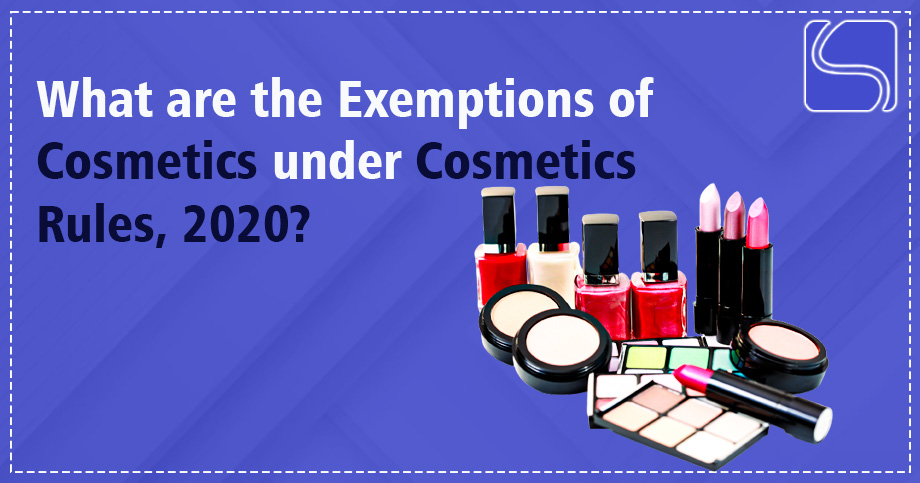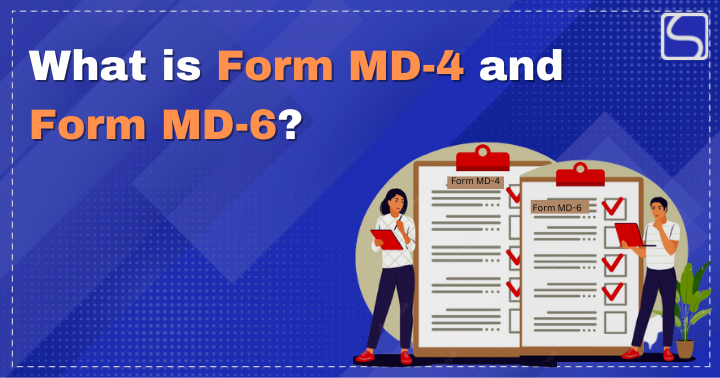What are the Exemptions of Cosmetics under Cosmetics Rules, 2020?

Karan Singh | Updated: Oct 29, 2022 | Category: CDSCO
As per the Drugs & Cosmetics Act, 1940 and Cosmetics Rules, 2020, enacted thereunder, the State Drug Control Department inspects & grants Cosmetic License approval for manufacturers & importers in India. Furthermore, the import of cosmetics is governed or controlled by a Registration system administered by the CDSCO, which is responsible for regulating cosmetics activities & propagating corresponding regulations. Cosmetics, as may be specified in the 12th Schedule, shall be exempted from the provisions of Chapter III & Chapter IV of the Act & Rules made thereunder to the extent & subject to the conditions specified in that Schedule. Exemptions of Cosmetics products are not manufactured for consumption or sale in India. In this write-up, we will discuss exemptions of Cosmetics under Cosmetics Rules, 2020.
Table of Contents
Primary Functions of CDSCO for Cosmetic Regulation
Following are some primary functions of Cosmetic Regulation include:
- Amending the Drugs and Cosmetics Rules, 1945[1] & and Cosmetics Rules 2020 and concerning Import Registration for Cosmetic Products;
- Responding to Government correspondences & BIS requests as required;
- Examining & reading applications for Cosmetic Registration as per Rules circulated by the Drugs & Cosmetics Act 1940 and, Rules 1945 & New Cosmetics Rules 2020. Thereunder;
- Helping the public with hearings or inquiries regarding Import Registration of Cosmetics & providing guidance thereon;
- Cosmetic Import Registration received from the applicant is pre-screened;
- The pre-screening checklist & standard operating procedures for evaluating cosmetic import & registration applications have been changed to show the current working procedures;
- Deal with complaints from NGOs, business associations, the general public, and consumer forums regarding Cosmetic Standards;
- Evaluating & reviewing various applications for NOCs or Clarifications related to the import of cosmetics.
Exemptions of Cosmetics as per the 12th Schedule of Cosmetics Rules
Following are exemptions of cosmetics as per the 12th Schedule of Cosmetics Rules:
| Class of Cosmetics | Extent & Conditions of Exemptions of Cosmetics |
| Cosmetics | The provisions of Chapter IV of the Act & Rules made thereunder should be covered by a License for sale, provided that the Cosmetics sold, if of Indian origin, are manufactured by certified manufacturers. |
| Cosmetics imported in a Kit form are to be marketed in India as such, wherein all products of the kit are already registered for import into India under Cosmetic Rules, 2020. | The provision of Chapter III of the Act & Rules required them to be covered by the Registration Certificate. |
| Following are the categories of cosmetics: Cosmetic for R&D purposes such as customer studies, transport studies, packaging trials & shelf life studies.Cosmetics imported for use in hotels exclusively for their captive consumption & after providing a notarized undertaking to this effect.Cosmetics for sale to foreign passengers in duty-free shops in international airports.Cosmetics in bulk for repackaging for 100% export to other nations.Cosmetics in amenity kits for the exclusive use of overseas passengers on a complimentary basis if not used for domestic sales. | The provision of Chapter III required them to be covered by a Registration Certificate subject to a condition, i.e., the Cosmetics shall not be used for domestic sale. |
| Hairs Fixers, namely mucilaginous preparations, contain gums used by men to fix their beards. | The provisions of Chapter IV of the Act & Rules thereunder. |
- It is prohibited to import or manufacture cosmetics containing colours, dyes & pigments that do not meet the specifications of BIS. Colours & pigments used in cosmetic products or items shall be those listed by the BIS & Schedule Q. Cosmetics products may contain no more than the following synthetic & natural organic colours:
- 20 parts per million concentration of lead are calculated as the lead;
- 100 parts/million concentration of heavy metals other than the lead is calculated as the total of the respective metals;
- 2 parts/million concentration of arsenic calculated as arsenic trioxide.
- Cosmetics imported into India/manufactured domestically shall be predominately mercury-based. The percentage of mercury proportion should be:
- As far as finished cosmetics are concerned, unintentional mercury levels must not exceed one part/million (1 ppm);
- The mercury level, calculated as the metal, shouldn’t exceed 70 parts/million in cosmetics products intended for use only in the eye area.
- Importation of cosmetics products that have been tested or examined on animals is prohibited;
- Cosmetics, including hexachlorophene are prohibited from being manufactured/imported;
- Cosmetics containing arsenic or lead for the purpose of colouring cosmetics are prohibited or banned from manufacturing or being imported.
Conclusion
The provisions of Chapter IV of the Act & Rules made thereunder should be covered by a License for sale, provided that the Cosmetics sold, if of Indian origin, are manufactured by certified manufacturers. Exemptions of Cosmetics products are not manufactured for consumption or sale in India.
Read our Article:An Overview of Grant of Test License for Import under MDR, 2017














